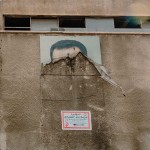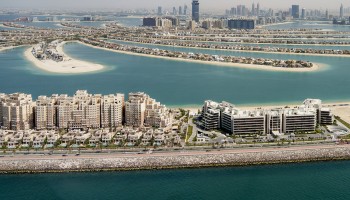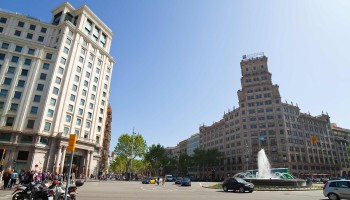While the Constitution of Costa Rica does not allow its citizens to be extradited, things didn’t work out well for the Colombian and his associates.
In April 2012, José Fernando Medina Chica, known as “Fer” or “the Body,” married Costa Rican citizen Ingrid María Monge Gamboa. Ruiz notarized the marriage paperwork. Medina Chica eventually gained citizenship in the Central American country, which should have sheltered him from extradition.
But in June 2017, he traveled to Colombia, where he was arrested. According to an indictment in a US federal court in the Eastern District of Texas, he is the leader of a criminal organization that used Costa Rica as a platform to send tons of Colombian cocaine to the United States.
Colombia’s anti-narcotic police say his group is allied with the powerful La Empresa organization, which works from the port of Buenaventura, coordinating drug shipments in go-fast boats and fishing vessels through the Pacific Ocean.
Documents US authorities sent to Colombia’s Supreme Court say that the drug money was funneled from the United States to Mexico, Guatemala, Costa Rica, Panama and Colombia. The Medina Chica organization is also linked to a boat intercepted in Panamanian waters in January 2017 carrying 1.3 tons of cocaine.
Medina Chica was not the only member of the organization who has managed to develop strong Costa Rican ties through marriage.
His nephew, Diego Fernando Medina Perea, also known as “Chuky,” also wed a Costa Rican woman and obtained citizenship there. Between 2002 and 2011, he was married to Johana María Umaña Centeno and had three daughters with two other women.
According to US court documents, Medina Perea coordinated the shipments and distribution of drugs in Costa Rica and Guatemala. To avoid extradition, his defense argued that he was a member of the Revolutionary Armed Forces of Colombia (FARC), the leftist Colombian guerrilla group, and that consequently he should benefit from an amnesty granted to FARC members in a 2016 peace deal between the group and the Colombian government.
But Medina Perea did not appear in any of the listings of FARC members provided by the group, and his extradition to the United States was approved on April 30.
The Colombia's Supreme Court also authorized the extradition of two other Colombian associates of Medina Perea who had married Costa Ricans.
According to court records, Ronald Barona Muñoz, aka “Ezlatan,” was the coordinator of the go-fast boats and had contacts with Mexican drug traffickers. In 2007 he married Yaquelin Carolina Gómez Becerra in Costa Rica.
Another Colombian with a Costa Rican passport is Alexi Meléndez León, aka “Volvo.” He is accused of receiving several tons of cocaine from Colombia to import to the United States, and of having distribution contacts in California, Oregon and Georgia. Between 2006 and 2012, he was married to a Costa Rican woman.
The criminal organization’s other detained member was Costa Rican national César Rivera Blandón, arrested in Medellin´s airport in February 2017. In Costa Rica he posed as a fisherman, but authorities were investigating him on several drug-related cases. After his arrest, they seized properties worth more than $2 million.






